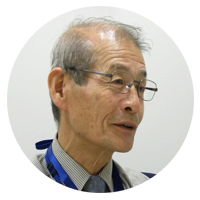Learn from history and have your own information
The first thing that is indispensable for innovating is, of course, to acquire the knowledge and skills that you are good at.I studied chemistry at university and used it to get a job in a corporate laboratory.My main focus was on carbon-based materials research.Serendipity * 4, which is often said to have been won by chance, luck, or the Nobel Prize, is also required.
I succeeded in using LiCoO2, which had been used for the negative electrode, as the positive electrode and carbon material for the negative electrode, but the material at that time happened to be developed by another laboratory. ..If I hadn't been researching at a chemical manufacturer, and at that time the material hadn't been developed in another laboratory, I'm sure there would be a slightly different design of rechargeable batteries around the world by this time. maybe.
Another essential factor in innovating is catching signals from the future.What will the future society look like?Or what kind of society should it be?It may be said to communicate with the future.To do this, you need to be familiar with the past and history.For a year or two after entering university, I joined the Archaeological Study Group and devoted myself to the investigation and excavation of archaeological sites and abandoned temples in order to acquire something other than my specialty.Archeology and history teach us that history repeats itself.Unexpectedly, people can't even remember five or six years ago.Communication with the future can be started by looking back on past events.
Today is a society full of information.If you swallow them, you can't think or create new things, things that people don't think, just by being swept away.It is especially important now to look back on the past and compare it with what is happening now to create your own "information".
Unless you make your own antenna, you will not be able to capture faint signals from the future.

Akira Yoshino
Born in Osaka in 1948. Graduated from the Department of Petrochemistry, Faculty of Engineering, Kyoto University in 70. Joined Asahi Kasei Kogyo Co., Ltd. (currently Asahi Kasei Co., Ltd.) after completing the master's course at the Graduate School of Engineering of the same university in 72.After working as General Manager of Aeon Secondary Battery Business Promotion Office and General Manager of Battery Material Development Office, he has been a Fellow of Asahi Kasei since October 2003.He has received numerous awards such as the Chemical Technology Award (Chemical Society of Japan) and the Medal with Purple Ribbon.Born in Osaka Prefectural Kitano High School.
* Excerpt from the October 96, 2011 issue of the University Journal vol.10
